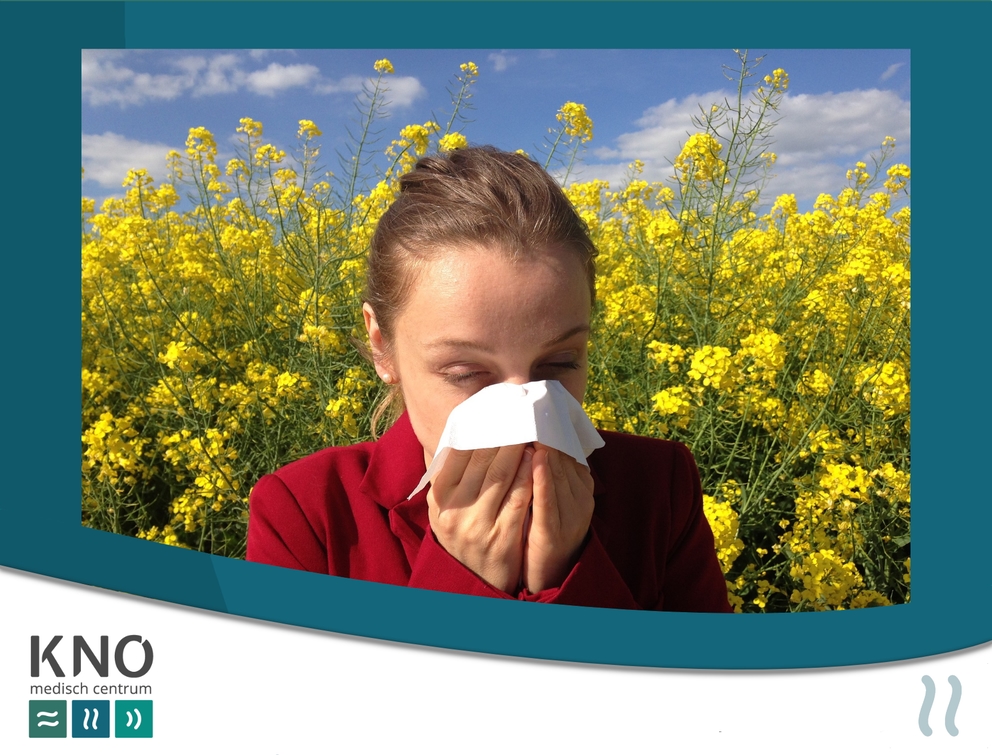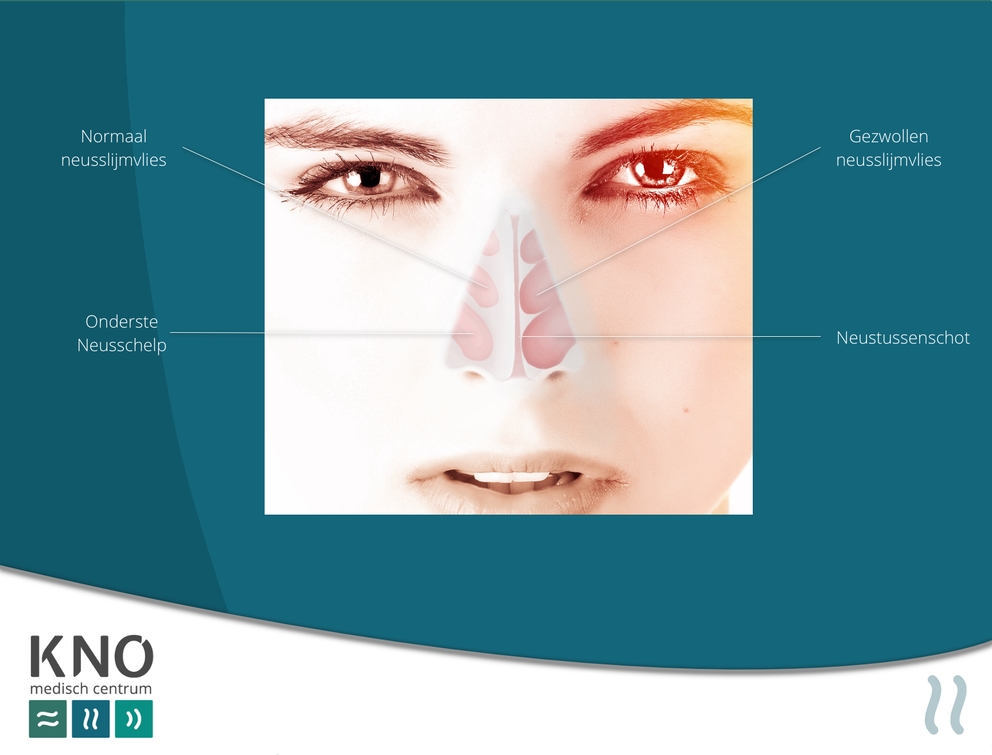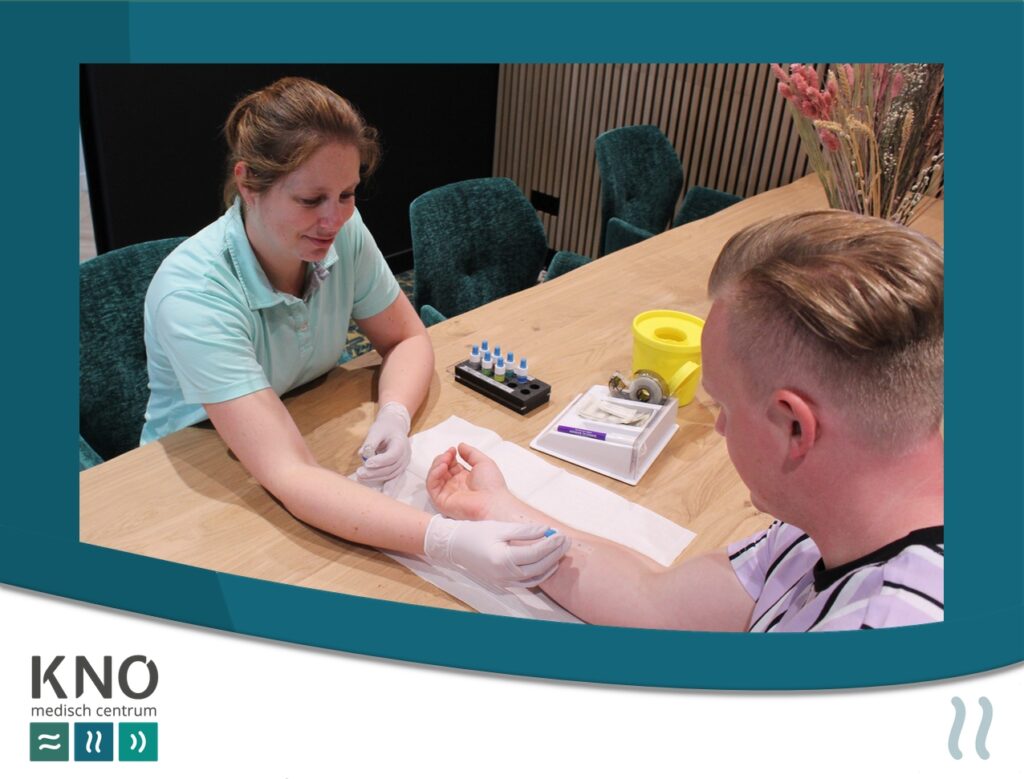what is allergy?
explanation
Allergy is a hypersensitive reaction of the body’s immune system to harmless substances. This means that your body reacts strongly to substances that are not harmful to you, more commonly known as an allergic reaction. These substances are called allergens. Examples of these inhalant allergens are grass and tree pollen, animal dander, house dust mite and molds. An allergic reaction to one of these substances can manifest itself in nasal congestion, sneezing, sniffling, watery eyes and itching of the eyes, nose and throat. Sometimes asthma symptoms can also occur with an allergy.

What symptoms are associated with ALLERGY?
symptoms
People who suffer from an allergic reaction often suffer from a watery runny nose, sneezing and sometimes itchy, watery eyes. There may also be nasal congestion symptoms.
In addition to these nasal symptoms, asthma patients can also suffer from shortness of breath and wheezing.
Can allergic rhinitis be the cause of other problems?
Various diseases and complaints can (partly) be caused by an allergic rhinitis. These include ear infections, sinus infections, coughing, headaches and fatigue. This often decreases if the allergy is treated well.
Are all nasal complaints caused by allergies?
Not all nasal complaints are caused by allergies. Nasal complaints can also be the result of infections, irritants and abnormalities in the structure of the nose. Some people react strongly to non-allergic stimulants such as tobacco smoke, (paint) odors, fog and temperature changes. They get a nasal congestion, sneezing and a runny nose. We call this non-allergic or idiopathic rhinitis. The nasal symptoms of allergic and idiopathic rhinitis can be similar.
What tests can be done to discover the allergy?
On the basis of an examination, the ENT doctor can determine whether your complaints are caused by certain substances in your environment. The ENT doctor can do a skin test or a blood test. For more information, see: allergy test at KNO Medisch Centrum

what is the cause of (INHALATION) ALLERGY?
cause
The human body has historically had to defend itself against a large amount of bacteria and viruses. Since we have become increasingly hygienic in recent decades, our immune system has had to face fewer and fewer threatening infections. The theory of the development of allergies is that in the absence of real infections, the body detects harmless substances as threatening and act against them. This is the allergic reaction if there is contact with harmless substances such as pollen, house dust mites, molds and animals. In addition, certain people have a hereditary predisposition to quickly develop hypersensitivity.
What are the main allergens that can cause an allergic reaction?
House dust mite
House dust mite is a harmless spider that occurs in all Dutch houses. It is not visible to the naked eye. It mainly lives in house dust and feeds on dander. The animal lives most comfortably in a warm, moist environment where there is a lot of dander. Examples include mattresses, pillows and carpeting. Especially the bed is a favorite place. House dust mites occur all year round. Their number increases in the fall, so does the chance of an allergic reaction to it.
Grass and tree pollen
Flowering grass(pollen) and tree pollen from flowering trees, especially birch, alder and hazel, cause hay fever.
Animals
Animal dander from cats, dogs and horses, but also rodents have allergens.
Other allergens
Moulds, weeds and yeasts can also cause allergic symptoms.
How do my allergic complaints arise?
If an allergen (eg grass pollen grains) gets into your nose, an allergic reaction of the nasal mucosa can occur. The immune system of the nose reacts abnormally to the allergen to which you are hypersensitive. The binding of allergen to these antibodies stimulates the cell to release certain substances, such as histamine. These substances dilate small blood vessels. This widening results in an itchy nose, sneezing and nasal congestion. We call this allergic rhinitis.
What to do against INHALATION ALLERGY?
solution
The basis of treating allergies consist of avoidance. It is very important that you avoid contact with the allergen as much as possible. This is sometimes easier said than done.
Measures against house dust mite allergy
- Prevent dust formation in which the house dust mite can live.
- Clean your smooth floors daily with a wet cloth.
- Air filter devices have no proven effect on allergy complaints.
- We do not recommend purchasing such a device.
- Ensure a dry bedroom by turning on the central heating in the autumn.
- Wash bed linen and curtains at 60°C.
- Protect the mattress and pillow with a dust mite-proof cover.
Measures against grass and tree pollen allergies
- Keep windows and doors closed as much as possible when there are a lot of pollen in the air.
- Do not go outside too much if you suffer complaints.
- Especially early in the morning, on hot sunny days, there are a lot of pollen in the air.
measures against pet allergies
- Unfortunately, the best solution is to find another home for the animal.
- If you decide not to do this, at least keep the animal out of the bedroom.
- Hypo-allergic pets do not exist.
.
Which medicine helps against (INHALATION) ALLERGY?
medicine
The best-known remedies that are available against the annoying symptoms of allergy are now also available without a prescription. The majority of people with complaints hardly contact the general practitioner or ENT specialist. In the care offer section, there will be explained which steps there are in the treatment of (inhalation) allergy.

Which possible treatments for INHALATION ALLERGY?
treatments
The treatment actually consists of 3 steps:
1. Avoiding the allergens
Unfortunately, this is not always possible.
2. Medicines
Medications reduce the symptoms but do nothing about the ultimate cause.
Nasal Spray
These are usually anti-inflammatory nasal sprays. But there are also nasal sprays with an anti-allergic effect or a combination of both. Especially complaints of nasal congestion and mucus formation, are best treated with these medicines.
Anti-allergic tablets (antihistamines)
Help quickly if there are already complaints. They mainly help if there are complaints of sneezing and itching.
Eye drops
These can contain anti-allergic of anti-inflammatories agents and help against itching in the eyes.
3. Immunotherapy
Another way to treat allergy symptoms is to let the immune system get used to the substance to which you are allergic. This treatment is called immunotherapy. The purpose of this is to make you less allergic. As a result, fewer or even no medicines are needed anymore.
There are two dosage forms of immunotherapy.
The first is with injections (SCIT subcutaneous immunotherapy). This therapy can be started at the outpatient clinic according to a certain schedule. An increasing dose is given every week, so that the body gets used to the substance. The period of increasing dosage lasts approximately 13 weeks. After that, you must make an appointment every month for a new injection at the GP or clinic.
The second form of administration is the daily intake of tablets (AIT allergy immune tablet) containing an allergen extract. This seems to be more pleasant than injections, but you should build taking the tablets into your daily routine. You take the tablets at home, except for the first time. This takes place at the outpatient clinic because an allergic reaction may occur.
By means of one of the chosen forms of administration, the allergy complaints will already be reduced in the first year. A small minority of patients experience no improvement. For the best and lasting results, you should continue the treatment for at least three years. Sometimes the complaints do not disappear completely, but you have much fewer complaints.
After the results of the allergy test, the doctor will discuss with you which treatment is useful for you.
For more information, see: immunotherapy at KNO Medisch Centrum.
When to contact us?
contact
If you have many complaints such as an itchy nose, sneezing or nasal congestion and you want to be examined whether you have an allergy, you can make an appointment. If you are already familiar with an allergy, but are experiencing (too) much nuisance from the symptoms despite medication, it makes sense to make an appointment with an ENT doctor. Additional treatments are often possible so that you can achieve a clear reduction of the complaints.
More information
Click on the links below for more information
Information from the Dutch Association for ENT Surgery
Guidelines
Guideline for allergic rhinitis
Websites
Everything about allergic rhinitis
This patient information has been compiled with the utmost care. It concerns general information. This information is not legally binding. © KNO Medisch Centrum / www.knomc.nl
